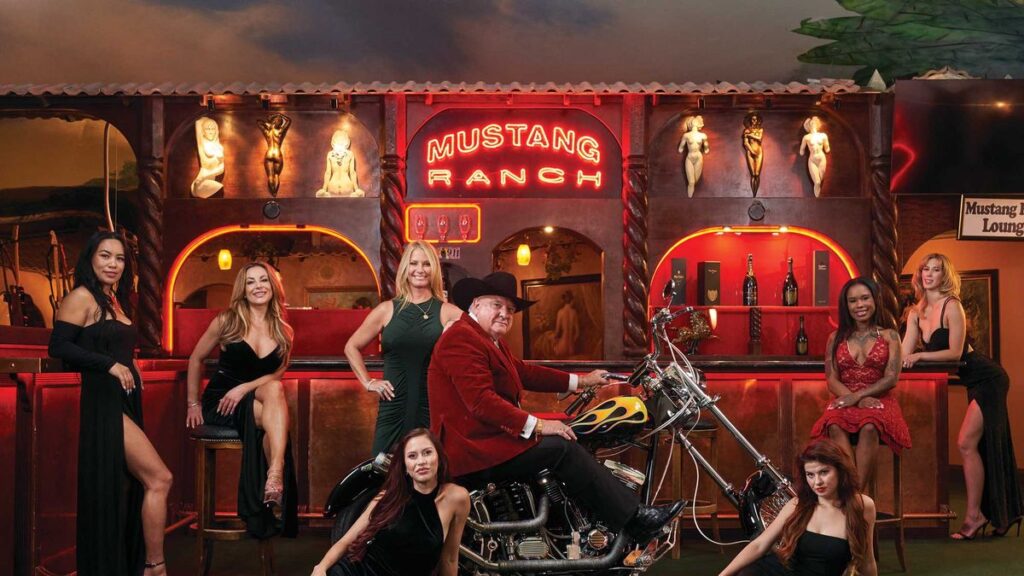In the vast expanse of Nevada’s high desert, nestled among the rugged landscape, lies a piece of American history that has captivated the imagination and curiosity of many: The Mustang Ranch. Synonymous with the quintessential image of brothels in America, the Mustang Ranch stands as a testament to the complex relationship between sex work, culture, and society. This iconic brothel offers a unique glimpse into a world often shrouded in secrecy and controversy.
A Historical Perspective
The history of the Mustang Ranch is as colorful and intriguing as the brothel itself. Established in 1955 by Joe Conforte, the Mustang Ranch quickly gained notoriety as one of the most prominent brothels in the United States. Situated just east of Reno, Nevada, the ranch became a symbol of Nevada’s long-standing tolerance for legalized prostitution, a practice dating back to the mid-1800s.
Throughout its history, the Mustang Ranch has weathered numerous legal challenges, including raids, closures, and changes in ownership. In 1971, the ranch faced a significant setback when it was shut down by federal authorities on charges of tax evasion and other illegal activities. However, it reopened its doors in 1972 under new ownership and continued to operate until 1999 when it was closed again following a federal indictment.
Legalization and Regulation
The story of the Mustang Ranch reflects the broader debate surrounding the legalization and regulation of prostitution in the United States. While Nevada remains the only state with legalized brothels, the issue continues to spark intense debate and controversy.
Proponents of legalization argue that it can help protect the rights and safety of sex workers, reduce instances of human trafficking, and generate tax revenue for local communities. They point to Nevada’s system of regulation, which requires regular health screenings for workers and strict adherence to safety protocols.
Critics, however, raise concerns about the exploitation and coercion often associated with the sex industry, as well as the potential negative social and moral implications of legalizing prostitution. They argue that legitimizing the trade perpetuates the objectification of women and contributes to the commodification of sex.
The Business of Pleasure
Beyond its legal and ethical implications, the Mustang Ranch offers a fascinating glimpse into the economics of the sex industry. As a fully functioning business, the ranch operates much like any other establishment, with a focus on customer service, marketing, and profitability.
The Mustang Ranch employs a diverse staff of women who come from various backgrounds and walks of life. Contrary to popular stereotypes, many of these women are well-educated and enter the industry by choice, drawn by the promise of financial independence and flexibility.
The ranch caters to a wide range of clientele, from local residents to tourists passing through the area. It offers a variety of services and experiences, from brief encounters to more extended stays, each tailored to meet the diverse needs and desires of its patrons.
Cultural Impact
Despite its controversial nature, the Mustang Ranch has undeniably left its mark on American popular culture. It has been the subject of numerous books, films, and television shows, each offering a different interpretation of its legacy and significance.
From the gritty realism of documentaries to the romanticized portrayals in Hollywood movies, the Mustang Ranch has become a symbol of intrigue and fascination for many. Its iconic red neon sign, featuring a bucking bronco, has become synonymous with the allure of the American West and the freedom of the open road.
Yet, beneath the glitz and glamour lies a more nuanced reality—one that reflects the complexities of human nature and society’s attitudes towards sex and intimacy. For some, the Mustang Ranch represents empowerment and liberation, while for others, it embodies exploitation and moral decay.
Looking Ahead
As the debate over the legalization of prostitution continues to evolve, the future of the Mustang Ranch remains uncertain. While it continues to operate under Nevada’s legal framework, ongoing social, political, and cultural shifts may shape its destiny in unforeseen ways.
Whether viewed as a symbol of liberation or a relic of a bygone era, the Mustang Ranch serves as a reminder of the enduring allure and controversy surrounding America’s brothel culture. As society grapples with questions of morality, ethics, and human rights, the legacy of places like the Mustang Ranch will continue to spark debate and intrigue for generations to come.
Conclusion
Mustang Ranch in Nevada symbolizes the complex relationship between sex work, culture, and society. Established in 1955, it reopened in 1972, despite legal challenges. The ranch’s legacy remains uncertain, but serves as a reminder of American brothel culture’s ongoing debate.







